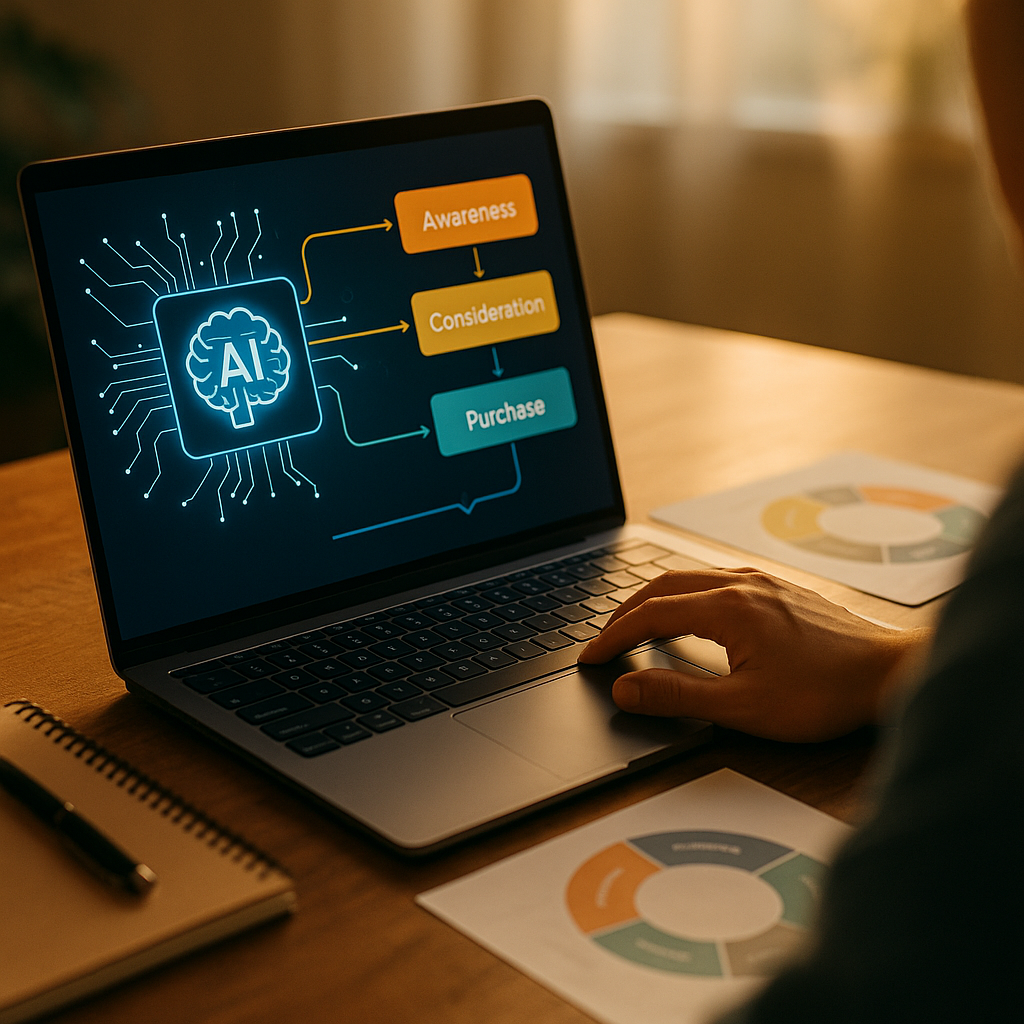Using AI to analyze and optimize your content for every stage of the customer journey is transforming digital marketing in 2025. Brands now harness advanced algorithms to deliver personalized, actionable experiences. But how can you leverage AI to ensure your content matches each customer’s intent and need? Read on to learn proven strategies for unlocking AI-powered content success.
Mapping the Customer Journey with AI Insights
Understanding the customer journey is critical to driving engagement and conversions. AI-powered tools dissect massive datasets—such as on-site behavior, social media activity, and search queries—to illuminate the stages your audience traverses, from awareness to advocacy. According to a 2025 Digital Content Trends report, businesses leveraging AI for journey mapping increase lead conversions by 34%.
AI identifies key touchpoints where prospects seek information, compare alternatives, or look for support. With these insights, content strategists create targeted material that resonates with users at each stage. For example, machine learning models reveal which blog posts draw in first-time visitors and which resources drive repeat engagement or sales.
Enhancing Content Relevance with AI-Powered Personalization
Personalization is no longer optional—it’s expected. AI-driven personalization tailors your content based on users’ preferences, previous interactions, and demographics. Tools like Natural Language Processing (NLP) and recommendation engines analyze user data in real time, curating the right messages for various audience segments.
This dynamic approach ensures that top-funnel users see informative, trust-building content, while bottom-funnel prospects receive product comparisons and in-depth guides. Recent studies show that companies adopting AI-powered personalization experience up to 48% higher engagement rates, underscoring the importance of aligning content with audience intent.
Optimizing Content Performance Across the Funnel With Machine Learning
Machine learning algorithms excel at uncovering what makes content perform at every stage of the funnel. By analyzing metrics like click-through rates, bounce rates, and time-on-page, AI identifies high-performing formats and messaging styles. Automated A/B testing refines headlines, layouts, and calls to action, ensuring continual improvement.
For middle- and bottom-funnel content, sentiment analysis tools assess reader reactions in real-time, highlighting chances to optimize for trust or conversion. This data-driven approach removes the guesswork from content optimization, replacing it with predictive insights that maximize ROI at each decision point of the customer journey.
Leveraging AI for Multichannel Content Consistency
Modern buyers interact with brands across multiple platforms—websites, social media, emails, and chatbots. Maintaining a seamless, consistent message is vital for trust and satisfaction. AI-powered content platforms unify messaging across these channels by analyzing user intent and adjusting language, tone, and format to match each context.
For example, an AI tool may suggest condensing a detailed blog post into an engaging Instagram carousel or a concise email. According to 2025 Cross-Channel Marketing Insights, brands deploying AI for multichannel consistency reduced content production costs by 27% and increased customer loyalty. This optimization ensures your brand’s voice remains clear and targeted from discovery through retention.
Measuring and Iterating Content Success with AI Analytics
Ongoing measurement is fundamental to sustainable content optimization. AI analytics platforms automate the collection and interpretation of vast engagement and conversion data pools. Predictive modeling highlights future trends and opportunities, while anomaly detection rapidly identifies under-performing content that needs revision.
These insights empower marketers to pivot strategies based on real audience behavior, rather than assumptions or lagging indicators. As a result, brands can iterate faster—experimenting with formats, topics, or distribution channels—and ensure all content investments deliver measurable outcomes throughout the customer journey.
Key Considerations for Implementing AI-Powered Content Strategies
- Data Privacy & Ethics: Ensure compliance with 2025’s most up-to-date data regulations and maintain transparent practices regarding AI-driven personalization.
- Content Quality: Prioritize expert-authored, evidence-backed content and regularly audit for accuracy, leveraging AI’s fact-checking and plagiarism detection capabilities.
- Team Training: Equip your marketing and editorial teams with foundational AI knowledge. This fosters collaboration between human creativity and AI efficiency.
- Technology Integration: Select AI tools that seamlessly integrate with your existing CMS, CRM, and analytics ecosystems for holistic optimization.
FAQs About Using AI to Analyze and Optimize Content for the Customer Journey
- How does AI identify stages of the customer journey?
AI uses behavioral analytics, site interactions, and conversion signals to segment users into journey stages—awareness, consideration, decision, retention, and advocacy—enabling tailored content targeting. - Is AI personalization suitable for small businesses?
Yes. Many affordable, scalable AI solutions exist that help small businesses deliver targeted content without requiring large teams or extensive technical expertise. - How can I ensure content quality with AI optimization?
Combine AI-driven analytics with human editorial oversight. Regular audits, expert input, and trustworthy sources uphold quality, while AI ensures relevance and performance. - Does AI replace human content creators?
No. AI enhances human creativity, streamlines analysis, and suggests optimization opportunities, but original insights and authentic storytelling remain essential human tasks. - What metrics should I track with AI analytics platforms?
Focus on engagement rates, conversion pathways, bounce rates, scroll depth, and segment performance across each customer journey stage for actionable optimization insights.
AI-driven content analysis and optimization empower brands to deliver the right message at the right time, for every stage of the customer journey. By combining data-driven insights with human expertise, you’ll create more meaningful connections, maximize ROI, and sustain digital marketing excellence well into the future.
